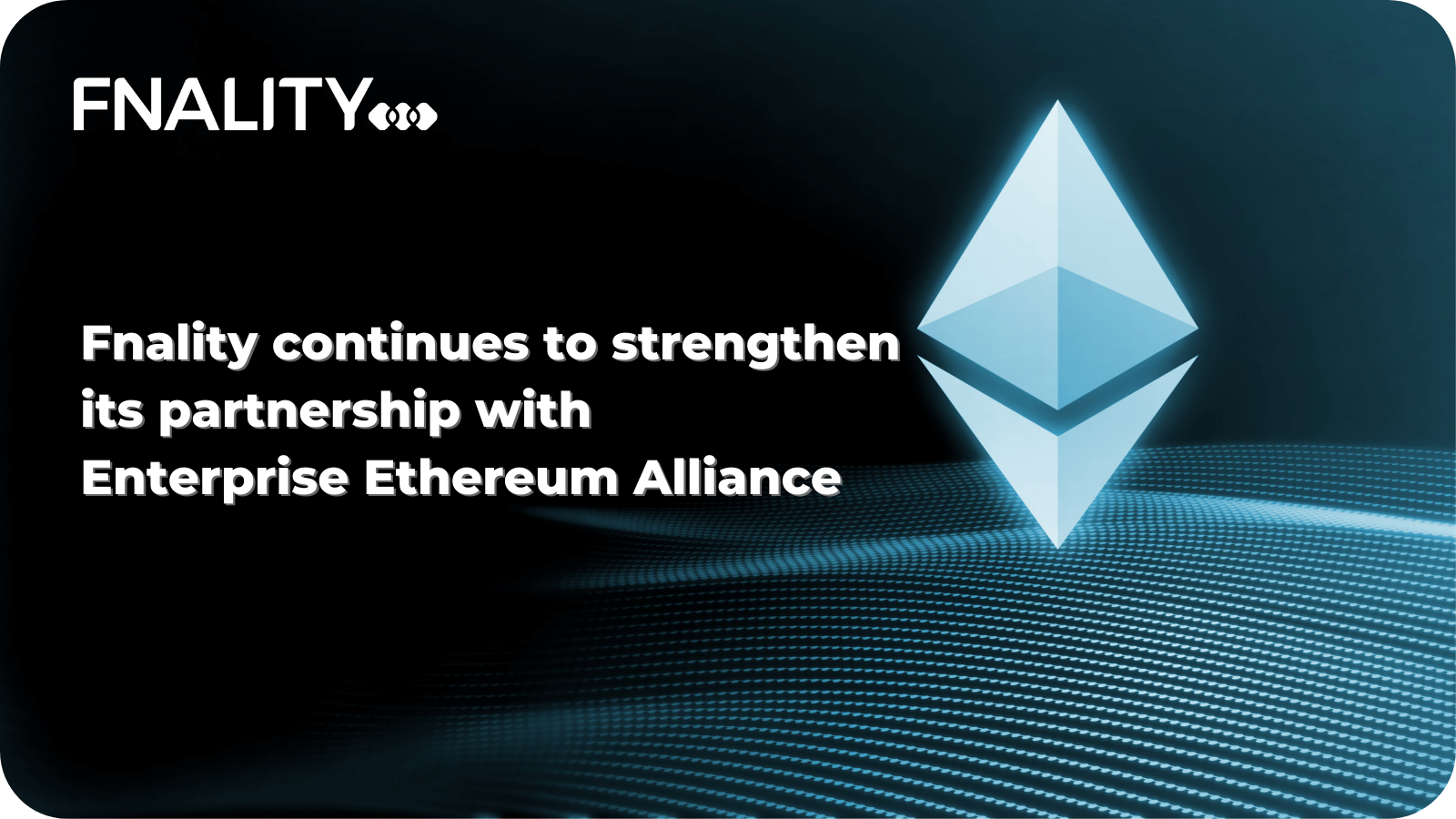Fnality continues to strengthen its partnership with Enterprise Ethereum Alliance


In August 2020 I was appointed by the Enterprise Ethereum Alliance (EEA) board as co-chair of the technical specifications working group. I am honoured by the trust placed in me to help drive such an excellent organisation forward in lockstep with Fnality. Strengthening Fnality’s alliance with the EEA is a fantastic mutually beneficial opportunity. It is a Fnality imperative to improve and drive open standards in the enterprise Ethereum space, and in turn, EEA technical specifications will benefit from improvements based on real-world applications of these standards.
For those unfamiliar with the role of this working group, the members drive the technical specifications which define all the functionality and capability that any enterprise Ethereum client must have to be compliant. Part of my role is to chair meetings with the group to propose improvements to the specifications submitted by its members and drive debate to a set of useful conclusions. Such agreed updates and upgrades are then published every quarter, with V6 published at the end of 2020.
Fnality has been a member of the EEA since the company was founded, closely adhering to EEA technical specifications with its partner, Adhara (utilising Hyperledger Besu). It is in Fnality’s interest to stay as close as possible to the development of EEA technical specification. When Fnality Payment Systems (“FnPSs”) are up and running, any organisation that builds a compatible Ethereum client according to the specification will be able to connect to the Fnality Global Payments (“FnGP”) network of payment systems (once permissioned, of course).
Fnality is bringing new, Ethereum-based payment systems into the financial world and staying aligned to EEA open standards reduces technical barriers for interested parties to join and participate in FnPSs. It is of course Fnality’s goal to grow its FnGP network of participants as quickly and as widely as possible, and our open standards approach promotes ease of adoption. In turn this will incentivise other players to join in order to interact and transact with existing participants. The flip side of the coin is that greater adoption of FnPSs results in greater adoption of EEA open standards, helping to continuously develop and improve them for members.
It is worth acknowledging here that Fnality is philosophically, if not intrinsically, aligned to EEA open standards. Ethereum is built on a philosophy of transparency and decentralised authority, which is the ethos upon which both Fnality and the FnGP initiative was conceived. Industry adoption of Ethereum has been slow, despite its obvious utility in multiple sectors. Large corporations tend to have rigid hierarchies with closely guarded systems and data. Reconciling these very different perspectives both technically and operationally is perhaps more complex than anyone anticipated.
Utilising the EEA’s open standard is fundamental to the success of FnPSs, next generation payment systems that deliver unprecedented levels of resilience and transformative efficiencies and risk reduction for the global financial system. In Fnality, the EEA has a committed partner in its endeavours to promote open standards for enterprises globally and in growing a dynamic and engaged community that continuously improves the standards to ensure quality, safety and efficiency of systems built upon them.